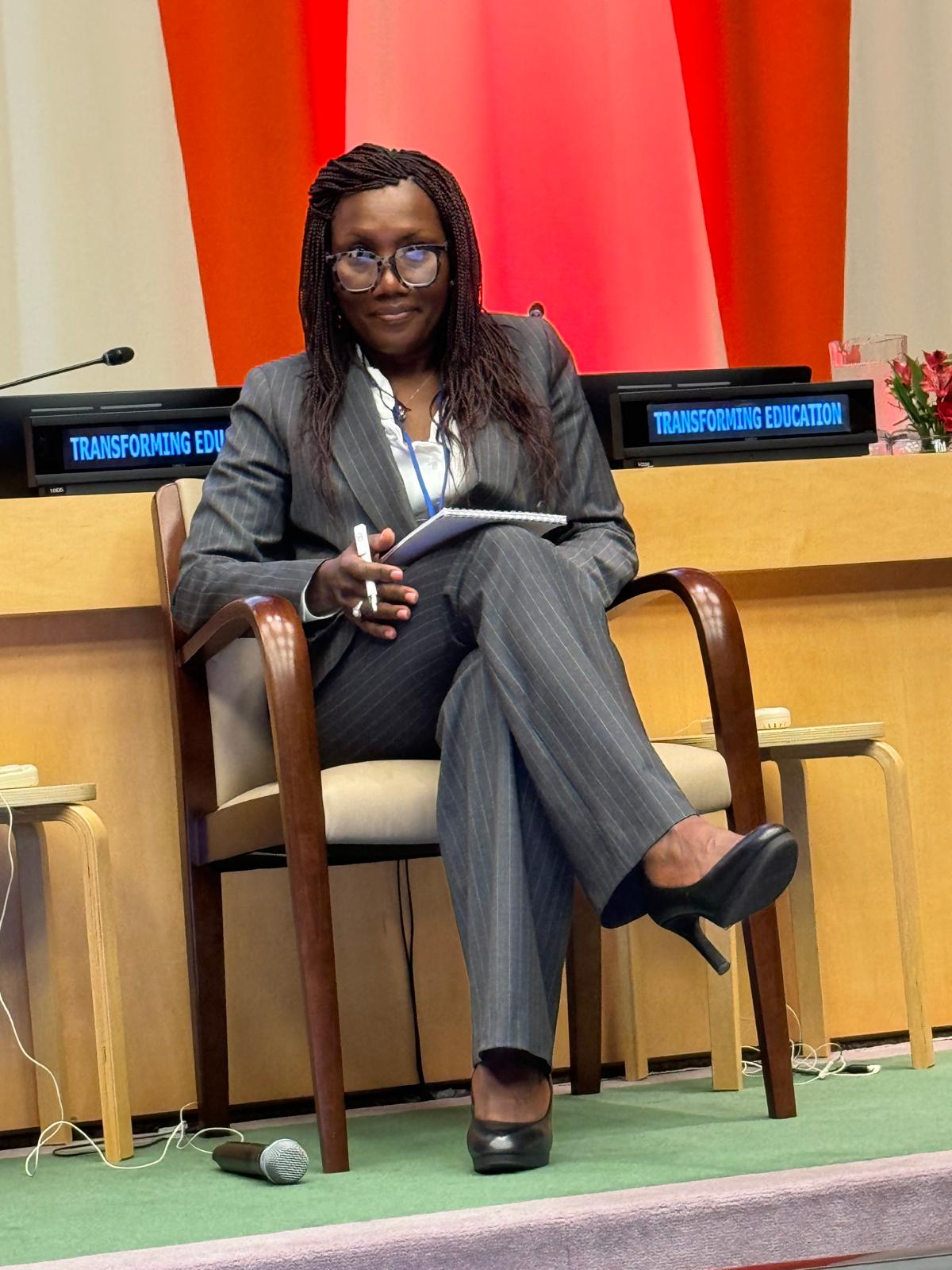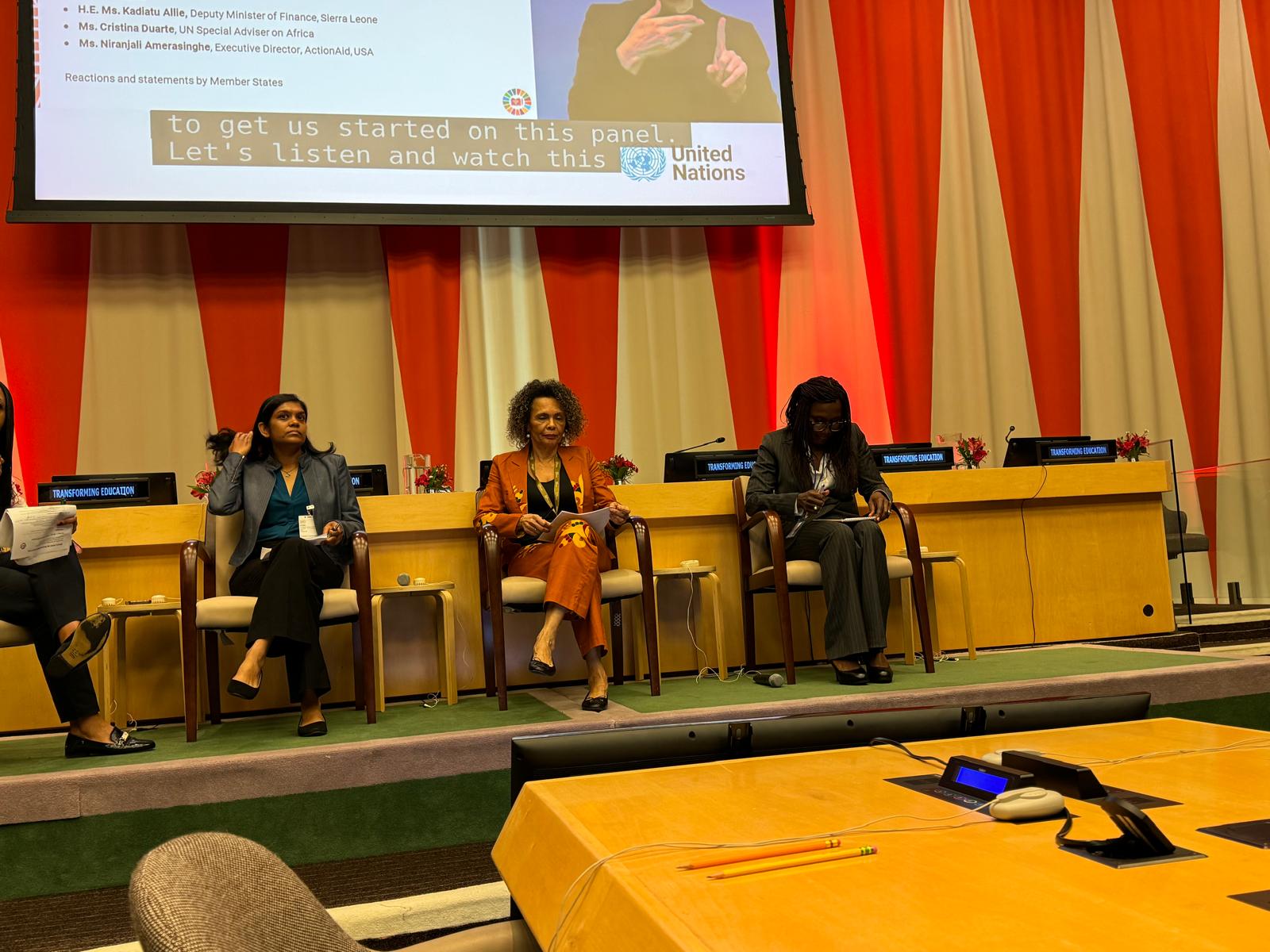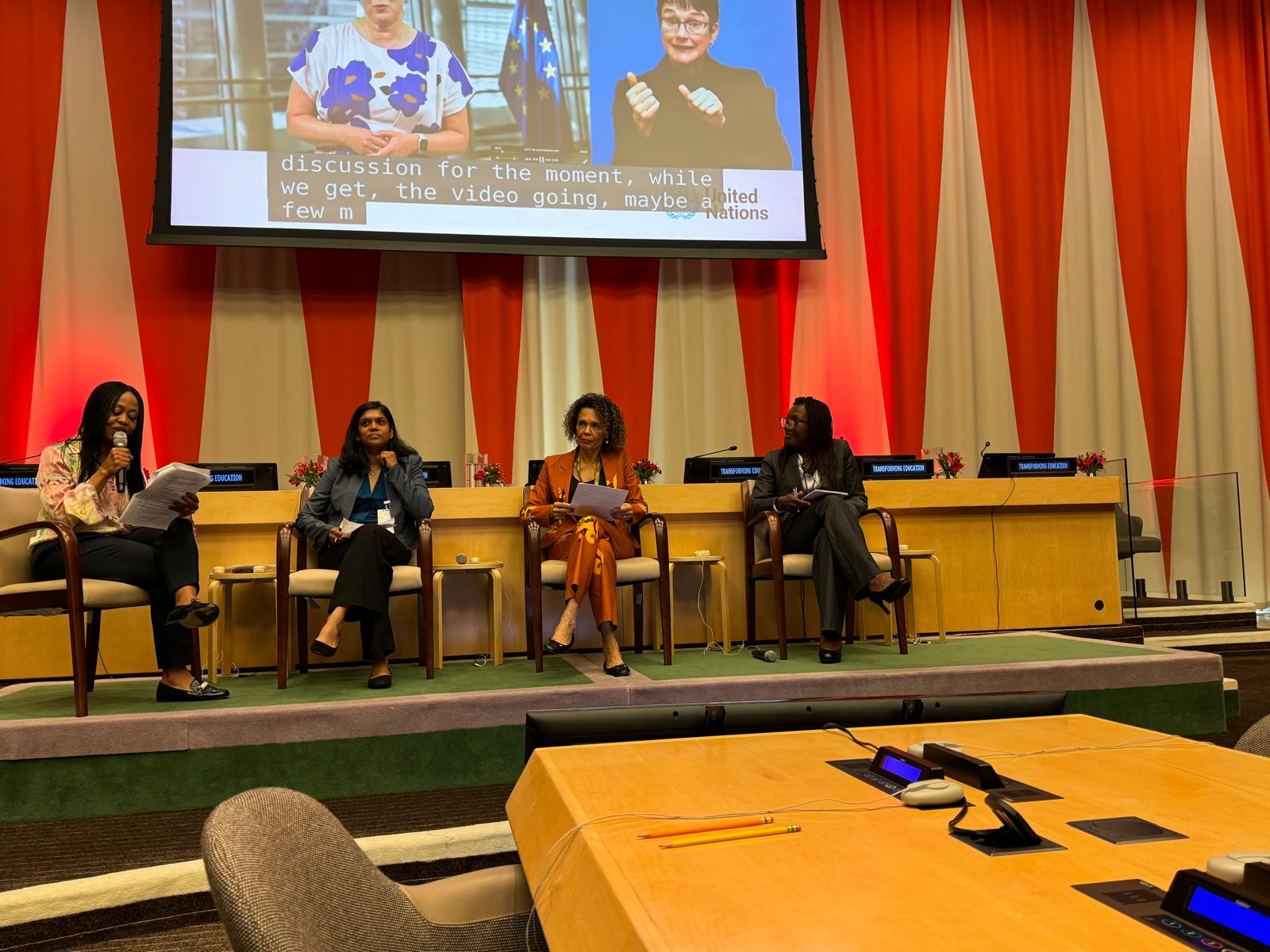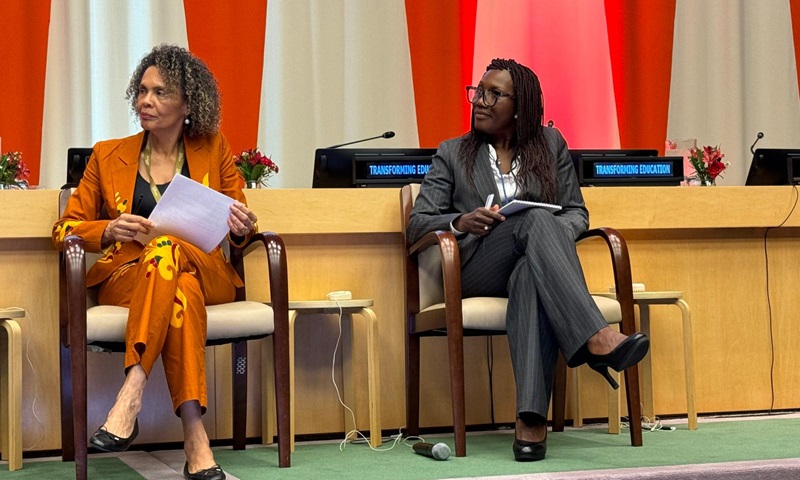The Deputy Minister of Finance 1, Madam Kadiatu Allie has concluded her participation at a Special Event on Transforming Education, convened by the UN Secretary-General (António Guterres), in collaboration with the President of the General Assembly (Dennis Francis), and the President of the Economic and Social Council (Paula Narváez).
The event was hosted at the ECOSOC Chamber, UN Headquarters in New York on 11 July 2024.
The Special Event on Transforming Education sought to address the outcomes of the Transforming Education Summit (TES) Stocktake and mobilise support for advancing education, consistent with the UN’s overall agenda.

In preparation for the Summit of the Future in September 2024, the Fourth International Conference on Financing for Development in 2025, and the World Social Summit in 2025, the Special event attended by the Deputy Minister of Finance 1 focused on two issues: investing in education and building learning societies.
During the high-level opening, Secretary-General Guterres observed that by 2030, about 84 million children are set to remain out of school unless measures are taken to accelerate the transformation of education globally.
The Secretary-General stated that consequently, the expectation of reaching the targets of Sustainable Development Goal 4 (SDG4) which aims to “ensure inclusive and equitable quality education and promote lifelong learning opportunities for all” is improbable.

He said that according to estimates by the United Nations Education, Scientific and Cultural Organization (UNESCO), developing countries would need to invest U$100 billion yearly to accomplish SDG4.
Deputy Minister Allie while speaking as a panelist on the topic of “transforming education financing” underscored Sierra Leone’s commitment to advancing SDG4 through the Free Quality School Education (FQSE). She mentioned that this has significantly increased enrolment and the programme also covers school feeding, improving the training of teachers, and promoting access to the most vulnerable segments of the population, including children with disabilities, pregnant girls and those from poor families.
She highlighted that financing the FQSE programme comes at a high cost to the Government. Deputy Minister Allie said that despite this situation, the Government spends at least 20 percent of GDP on education, and the budget is closely aligned with the Medium-Term National Development Plan (2024-2030) to maintain this commitment.

She also highlighted that the Government is working assiduously to mobilise domestic revenues, and it is now implementing a Medium-Term Revenue Strategy which aims to improve tax administration and compliance and increase the tax base.
Deputy Minister 1 said that the Government is also strengthening collaboration with development partners to provide more financing for the education sector.
She acknowledged the contribution of the World Bank’s US$50 million credit and the grant support from partners such as the European Union (EU), Irish Aid, the Global Partnership for Education (GPE), and the Foreign, Commonwealth and Development Office to the Free Education Project. She highlighted that education financing in the form of loans further elevates the country’s debt level and debt service payments, limiting the government’s fiscal space.
Contributing to the panel discussion, UN Adviser on Africa, Christina Duarte stressed the importance of improving domestic revenue mobilisation in developing countries and the need to ensure efficient spending of resources meant for education. During the high-level closing, Deputy Secretary-General and Chair of the UN Sustainable Development Group, Amina J. Mohammed said that there is a need to close the gap in accessing education, support teachers, raise resources to narrow the financing gap, embrace new technologies to transform societies, and continue to strengthen the global partnership for education.












Thank you ma